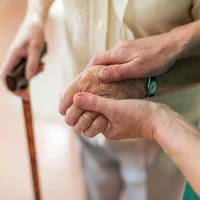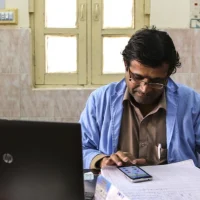The majority of older adults who represent a large part of healthcare patient population have little knowledge about how their personal health data are collected and processed, a new survey shows.
You might also like:2020 saw an unprecedented rise in cyber attacks on healthcare systems and institutions. However, in 2021 the situation might get even worse, and here is why.Learn more
As the data-driven revolution in healthcare progresses rapidly boosted by the COVID-19 pandemic, the notorious digital divide is getting wider as well. The recent AARP Big Health Data survey focused on one aspect of it, namely on how much elderly people are informed about the collection, analysis and utilisation of their health data.
The findings show that the larger part of the respondents (people ages 50 or older) is concerned that the risks might outweigh the benefits of handling personal health data collected by healthcare providers but also – inexplicitly – through many devices, websites and apps.
Even though the overwhelming majority of the 800-people sample did not know the term ‘big health data’, they were aware of the health data collection and expressed their concern about their further utilisation.
Specifically, some of the concerns include:
- The use of the collected data by the companies (67%)
- Sharing of their medical records with third parties (58%)
- Potential sale of medical/health data acquired by websites or apps (53% of those who use such)
- Collection of health-related data by the government (69%)
- Access to health data by insurance/financial companies (66%).
After being introduced to the term ‘big health data’, 57% saw potential risks in the data collection by the companies outweighing the benefits, while only 29% felt the opposite.
The vast majority of the respondents was concerned with the negative impact of the big health data use on a personal level, e.g. affecting their access to insurance (78%). On the other hand, over a half believed that respective limitations might have negative consequences on emergency epidemic response (59%) or the development of cost effective treatments (56%).
The results highlight the need to establish transparent policies on health data collection and use as well as ensure that older populations have access to easy-to-understand information necessary for efficient health-related decision-making.
Source: AARP
Image credit:shironosov via iStock










